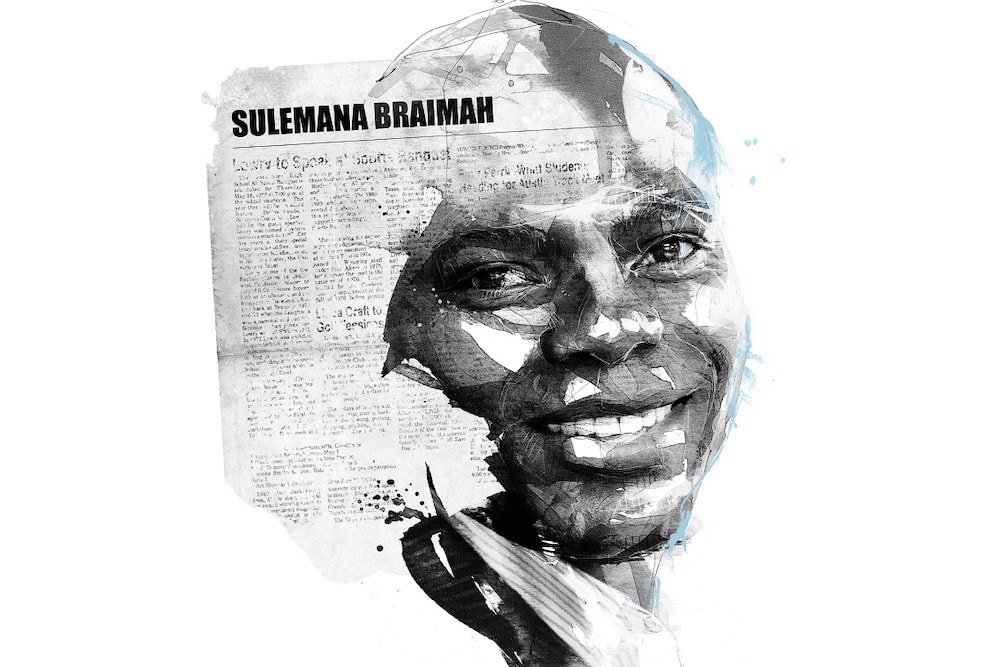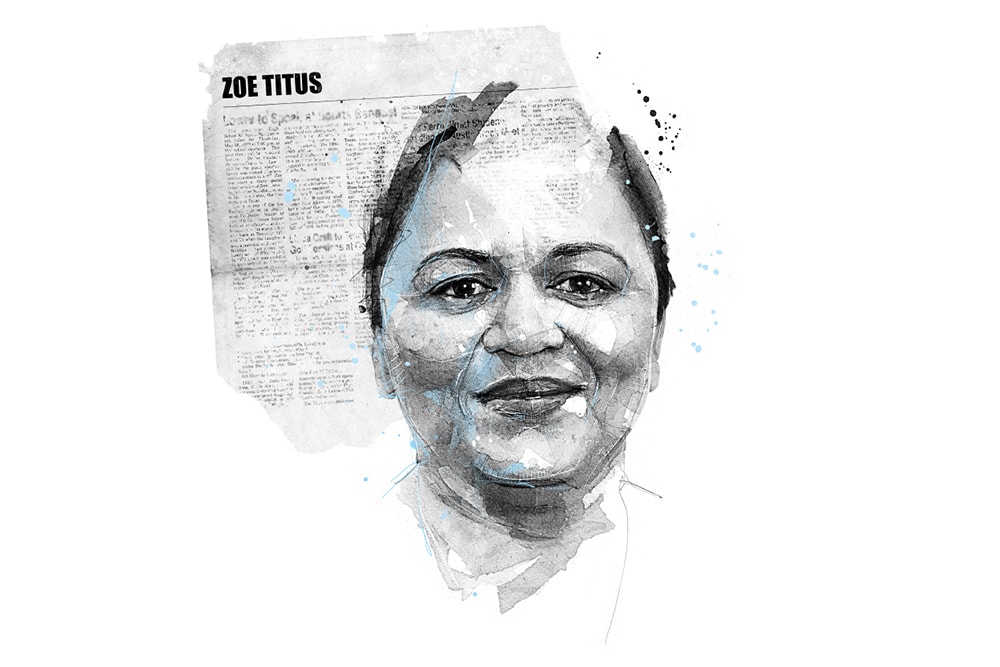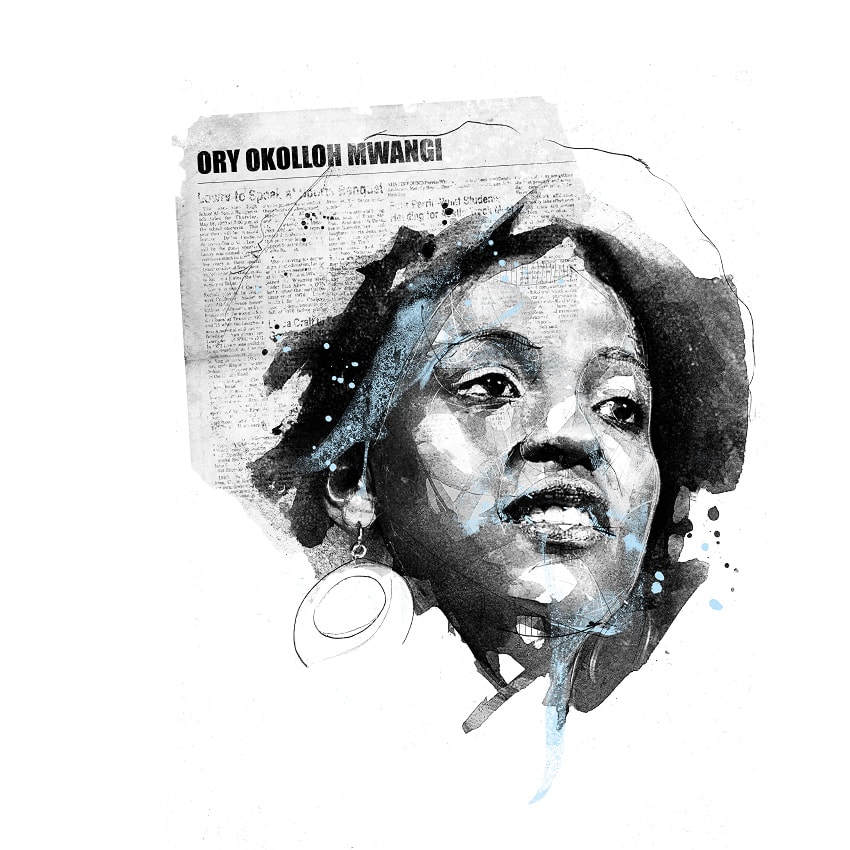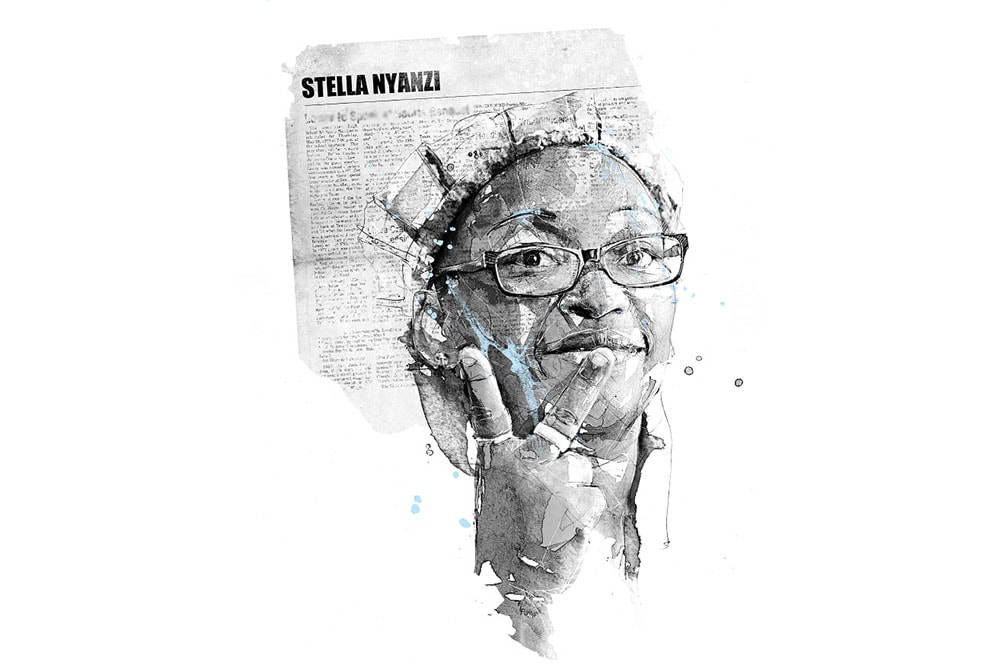Eritrean-Swedish journalist, poet and playwright, Dawit Isaak holds the unenviable record of being the longest detained journalist in the world.
"[He] paid a price for the generations to come. The highest price. He paid with his freedom."
Isaak has been in prison in Eritrea for over two decades and the last time there was any news of him was in 2005, when he was permitted to leave prison to access medical care. He was rearrested two days later.
In an extraordinary demonstration of Artificial Intelligence supporting free expression, the Swedish convenience store chain Pressbyrån, in collaboration with Reporters Without Borders (RSF) in Sweden, has reconstructed the writings of Isaak into a text titled “An Ode to Free Speech.”
Held incommunicado since that last interaction, Isaak has been denied access to family, friends, colleagues and his lawyer. Aside from being completely cut off from the outside world, he has not appeared in a court of law, and to date, no formal charges have been laid against him.
While questions on his whereabouts and his status have mostly been disregarded, during an interview with Radio France International (RFI) in 2016, Eritrean foreign minister Osman Saleh announced that Isaak was still alive and that he would “eventually receive his sentence when the country’s government sees fit.”
“We will not have any trial and we will not free him. We know how to handle his kind.”
Isaias Afwerki, President of Eritrea, speaking in 2009 about writer Dawit Isaak
In 2001, Isaak was picked up from his home in the early hours of the morning – an event recounted in detail by Martin Schibbye – Swedish editor, friend, colleague and ardent #FreeDawit advocate – during his keynote address at the annual Raoul Wallenberg gathering in 2019.
His seizure by the state came amidst the government’s crackdown on critical voices in the country. Isaak was bound to attract the authorities’ notice, because as Schibbye described: “His articles were to the point, provocative, they expanded the public sphere and signalled a new beginning that made it easier to breathe for the readers in the new country. But he paid a price for the generations to come. The highest price. He paid with his freedom.”
That freedom was abruptly lost when, on 23 September 2001, Dawit was arrested at his home in Asmara at the same time as several other independent journalists and government officials.
President Isaias Afewerki had taken exception to criticism by the G-15 – a group of ministers and politicians who had written a series of letters demanding elections be held, as promised, and for the proposed constitution to be implemented. After reporting on the conflict between the reformers and the president, independent media outlets such as Setit, co-owned by Isaak, were forcibly closed down by the government and remained permanently shuttered.
In their shadow report to the African Commission on Human and Peoples’ Rights, both PEN Eritrea and PEN International’s reports named Eritrea as the most dangerous country in the world for journalists, writers and free thinkers, underscoring “the dire state of media freedom and freedom of expression in Eritrea as well as the continuing practice of incommunicado detention of writers and journalists.”
Humble beginnings
Born in Eritrea in 1964, Isaak grew up in Asmara where his parents ran a small Italian deli. His love of writing was apparent from a tender age. According to Isaak’s profile by the Fritz Bauer Library: “younger brother Esayas recalls that Dawit literally wrote everywhere – at the breakfast table, before school; in his spare time, when other kids were playing; at night, in his bed. While still in elementary school, he began to author and stage theatre plays. As a young adult he published two novels in his native language of Tigrinya, winning several prizes and bringing him to national attention.”
He went into self-imposed exile in Sweden during his twenties, when the conflict between the Eritrean People’s Liberation Front and the Ethiopian army intensified. Isaak eventually became a naturalized citizen of Sweden, and while he adapted to Swedish society, his cultural identity and roots remained an integral part of his spirit, and he often repeated the mantra: “Don’t forget your language, your country, your roots.”
So it was no surprise that when Eritrea declared independence in 1993, Isaak decided to return. At a farewell lunch shortly before leaving Sweden he said: “I am going to make democracy in Eritrea.”
Isaak’s life in Asmara took shape around his love for theatre as he began working with young children at the Shewit Children’s Theatre and the acrobat group Circus Eritrea. He soon became a household name, when his short story “The Thirty-thousands” was serialised on Eritrean radio.
He entered the field of journalism soon after the country issued a new law allowing private ownership of print media. Isaak joined Eritrea’s first independent newspaper, Setit, initially as a contributor before going on to become co-owner with his colleague Aaron Berhane.
The quest for justice and accountability
Over the years numerous efforts and interventions have been made to have him freed, but as a Washington Post op-ed stated: “The Afwerki regime has repeatedly ignored every petition and relevant ruling for Isaak’s release — including a final and binding ruling issued by the African Commission on Human and Peoples’ Rights in 2016.”
In May 2009, President Afewerki stated: ”We will not have any trial and we will not free him. We know how to handle his kind. To me, Sweden is irrelevant. The Swedish government has nothing to do with us.”
Reporters Without Borders (RSF) welcomed the July 2023 decision by the United Nations Working Group on Arbitrary Detention urging the Eritrean government to disclose the whereabouts of Isaak and explicitly calling for his immediate and unconditional release.
This decision followed a complaint filed by RSF, seven international rights organisations and two Swedish lawyers regarding the prolonged detention of Isaak and at least ten of his colleagues, all of whom were arbitrarily imprisoned and remain the longest detained journalists in the world.
In July 2022, a coalition led by the Raoul Wallenberg Centre for Human Rights and including RSF, the Committee to Protect Journalists (CPJ), the International Bar Association’s Human Rights Institute (IBHARI), Parliamentarians for Global Action (PGA), PEN International, Defend Defenders, the Human Rights Foundation (HRF), and Isaak’s Swedish legal counsel, filed a complaint with UNGWAD.
The complaint called for accountability by the Eritrean government for its gross human rights violations against Isaak – a dual Eritrean-Swedish citizen, and his colleagues, while also demanding their immediate and unconditional release.




